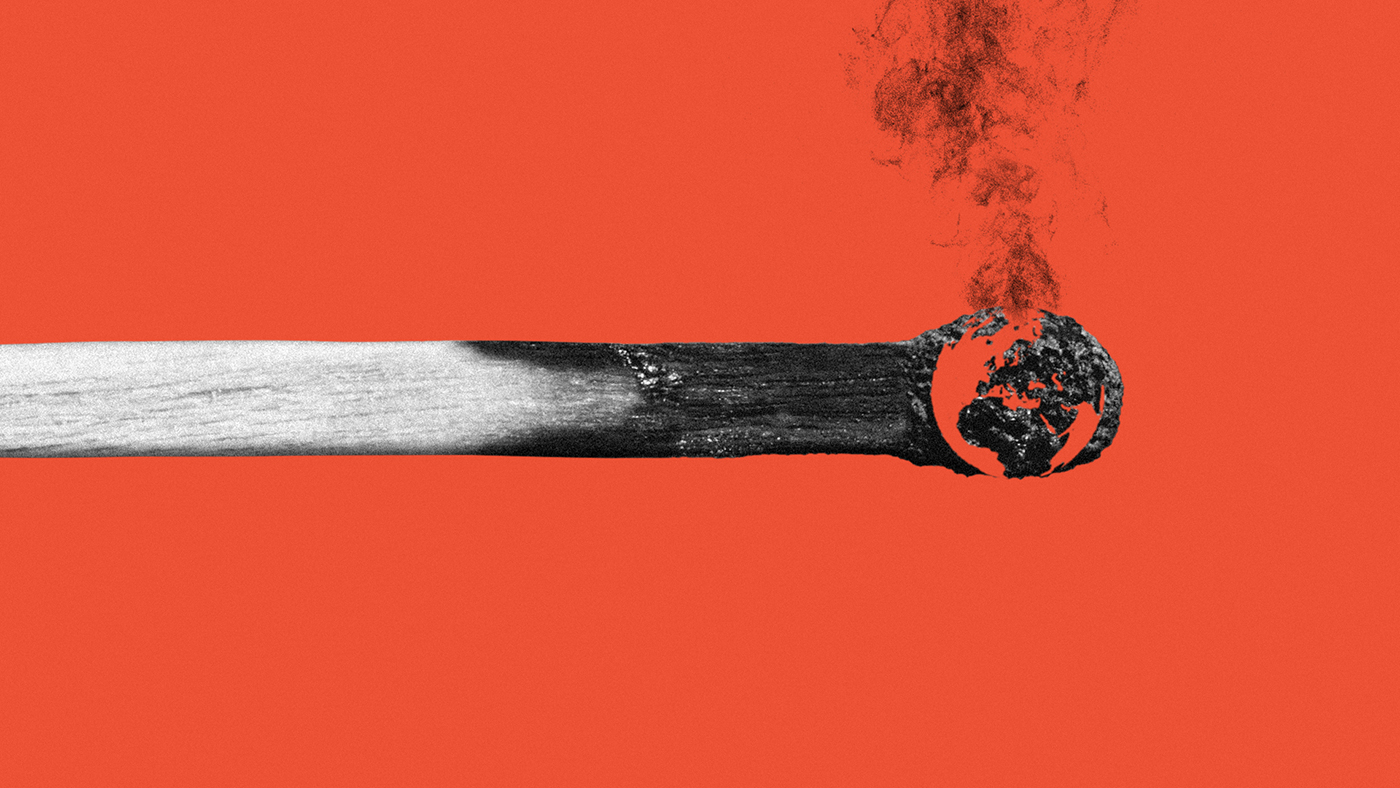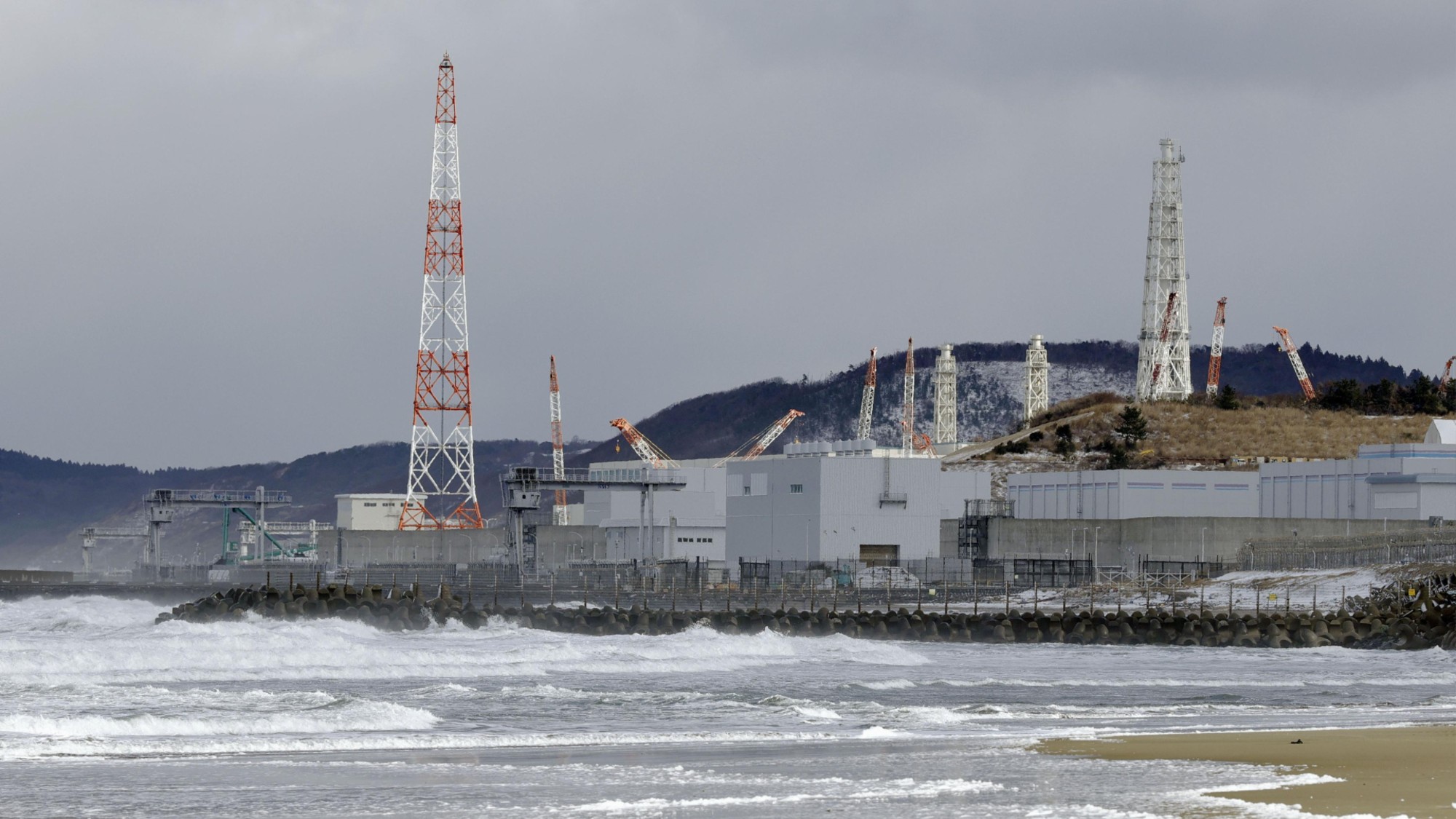Sunak house protest: is all fair in the fight against climate change?
Action by ‘self-obsessed zealots’ is condemned by some, but do less confrontational tactics work?

A free daily email with the biggest news stories of the day – and the best features from TheWeek.com
You are now subscribed
Your newsletter sign-up was successful
Five Greenpeace activists who were arrested after they scaled the roof of Rishi Sunak’s country home have been released on bail less than 24 hours after the protest.
The climate campaigners used ladders and climbing ropes to reach the roof of the manor house in Kirby Sigston, North Yorkshire. They were taking the action, they said, because Sunak has “opened the door to a new drilling frenzy in the North Sea” while “large parts of our world are literally on fire”.
Alicia Kearns, the Tory MP who chairs the Commons Foreign Affairs Committee, said the protest was “unacceptable”, and a Tory backbencher went further, telling the Daily Express that he would “shoot them”.
The Week
Escape your echo chamber. Get the facts behind the news, plus analysis from multiple perspectives.

Sign up for The Week's Free Newsletters
From our morning news briefing to a weekly Good News Newsletter, get the best of The Week delivered directly to your inbox.
From our morning news briefing to a weekly Good News Newsletter, get the best of The Week delivered directly to your inbox.
What did the papers say?
“While shoot-to-kill tactics may seem at the more extreme end of tackling the zealots”, said the paper, the incident has “certainly unnerved a few MPs”.
It has also agitated some media outlets. “This whole fiasco is a symbol of our country’s supine tolerance of a tiny, self-obsessed minority of climate zealots who seem able to disrupt the everyday life of the nation with impunity”, said the Daily Mail.
The actions of the Greenpeace activists are “simply unacceptable”, said The Yorkshire Post. The homes of politicians “should remain a safe place, free from intrusion”, as it “doesn’t just impact elected representatives but also their families”. The paper said that “fair-minded people will take a dim view” of the protest.
But is all fair in the fight against climate change? As the tactics of groups like Greenpeace and Just Stop Oil become more direct and confrontational, there has been criticism of activists’ rhetoric from the newly elected head of the UN’s Intergovernmental Panel on Climate Change.
A free daily email with the biggest news stories of the day – and the best features from TheWeek.com
“If you constantly communicate the message that we are all doomed to extinction,” said Professor Jim Skea, “that paralyses people and prevents them from taking the necessary steps to get a grip on climate change.”
The veteran campaigner Swampy, who became notorious during the 1990s for his climate protests, told Good Morning Britain that he “wouldn’t do it that way” when he was asked about some of Just Stop Oil’s disruptive tactics.
The campaigner, whose real name is Daniel Hooper, said that protesters who disrupt traffic or sporting events are “obviously brave and passionate”, but change will come from working with people from “different walks of life”.
However, some argue that less confrontational tactics have already been shown not to work.
Despite “decades of lobbying, petitions, marches and civil disobedience”, planet-heating fossil fuel emissions are at an “all-time high”, and the “window to avert further climate catastrophe is closing”, wrote Cara Buckley for The New York Times.
By staging more dramatic protests, such as throwing tomato soup at a Van Gogh painting, activists “nabbed far more attention than anything they’d undertaken yet”, she added.
“Disruptive political activism, from strikes to boycotts to road occupations, always makes enemies,” wrote Andy Beckett in The Guardian last year. “That’s part of the point: confrontations and controversies mean publicity.”
But criticising the climate activists “detracts from what we should be angry about – failure to tackle the most urgent problems of our age”, he added.
What next?
In the wake of the Greenpeace protest in North Yorkshire there have been questions over how the activists were able to reach the roof of the prime minister’s home.
Suella Braverman must launch an inquiry into the security breach at Sunak’s home, said her predecessor, Priti Patel. “It would be sensible for the home secretary to have a full review as to how this very serious security breach has taken place,” said Patel.
Peter Walker, the former deputy chief constable of North Yorkshire, has called for an investigation into his old force, The Times reported. “This time it happens to be Greenpeace – what if it had been a terrorist organisation?” he asked.
The protest will have been watched “with interest” by “more nefarious actors than Greenpeace”, agreed Ian Acheson for CapX. So, even if the protest is viewed as just a “bunch of tree-huggers playing an elaborate prank”, the “serious point” is that “violent terrorists are on the lookout for any weaknesses” in security, he added.
Meanwhile, the Daily Mail has called for the authorities to throw the book at the activists. “In America, they would probably have been shot on sight,” it said, and “in China, they would never have been heard of again”.
“These people compare themselves with the Suffragettes”, the paper said, but “they act more like mobsters”. Targeting the families and private homes of elected politicians is “simply unacceptable” and “the criminals responsible should be subjected to the full force of the law”.
Chas Newkey-Burden has been part of The Week Digital team for more than a decade and a journalist for 25 years, starting out on the irreverent football weekly 90 Minutes, before moving to lifestyle magazines Loaded and Attitude. He was a columnist for The Big Issue and landed a world exclusive with David Beckham that became the weekly magazine’s bestselling issue. He now writes regularly for The Guardian, The Telegraph, The Independent, Metro, FourFourTwo and the i new site. He is also the author of a number of non-fiction books.
-
 6 exquisite homes with vast acreage
6 exquisite homes with vast acreageFeature Featuring an off-the-grid contemporary home in New Mexico and lakefront farmhouse in Massachusetts
-
 Film reviews: ‘Wuthering Heights,’ ‘Good Luck, Have Fun, Don’t Die,’ and ‘Sirat’
Film reviews: ‘Wuthering Heights,’ ‘Good Luck, Have Fun, Don’t Die,’ and ‘Sirat’Feature An inconvenient love torments a would-be couple, a gonzo time traveler seeks to save humanity from AI, and a father’s desperate search goes deeply sideways
-
 Political cartoons for February 16
Political cartoons for February 16Cartoons Monday’s political cartoons include President's Day, a valentine from the Epstein files, and more
-
 The plan to wall off the ‘Doomsday’ glacier
The plan to wall off the ‘Doomsday’ glacierUnder the Radar Massive barrier could ‘slow the rate of ice loss’ from Thwaites Glacier, whose total collapse would have devastating consequences
-
 Can the UK take any more rain?
Can the UK take any more rain?Today’s Big Question An Atlantic jet stream is ‘stuck’ over British skies, leading to ‘biblical’ downpours and more than 40 consecutive days of rain in some areas
-
 As temperatures rise, US incomes fall
As temperatures rise, US incomes fallUnder the radar Elevated temperatures are capable of affecting the entire economy
-
 The world is entering an ‘era of water bankruptcy’
The world is entering an ‘era of water bankruptcy’The explainer Water might soon be more valuable than gold
-
 Fifteen years after Fukushima, is Japan right to restart its reactors?
Fifteen years after Fukushima, is Japan right to restart its reactors?Today’s Big Question Balancing safety fears against energy needs
-
 Climate change could lead to a reptile ‘sexpocalypse’
Climate change could lead to a reptile ‘sexpocalypse’Under the radar The gender gap has hit the animal kingdom
-
 The former largest iceberg is turning blue. It’s a bad sign.
The former largest iceberg is turning blue. It’s a bad sign.Under the radar It is quickly melting away
-
 How drones detected a deadly threat to Arctic whales
How drones detected a deadly threat to Arctic whalesUnder the radar Monitoring the sea in the air